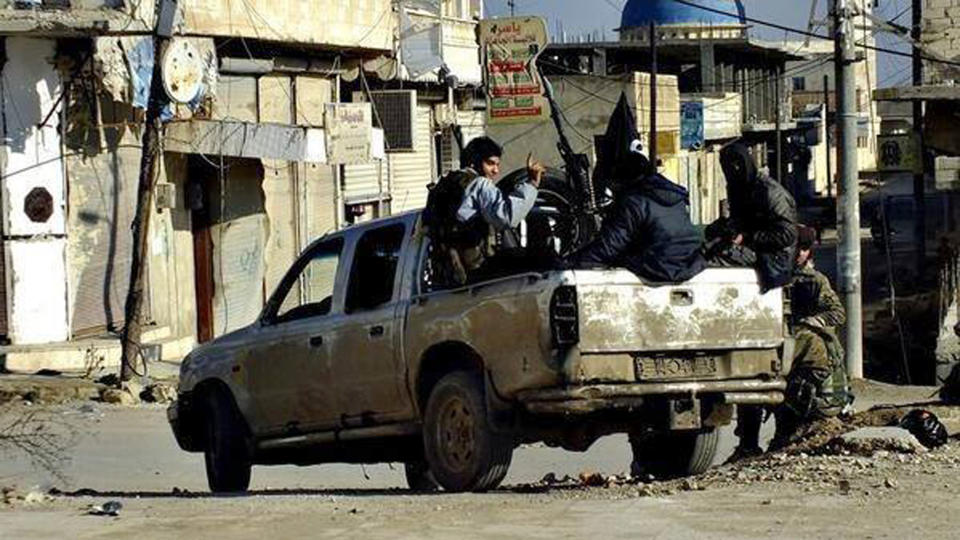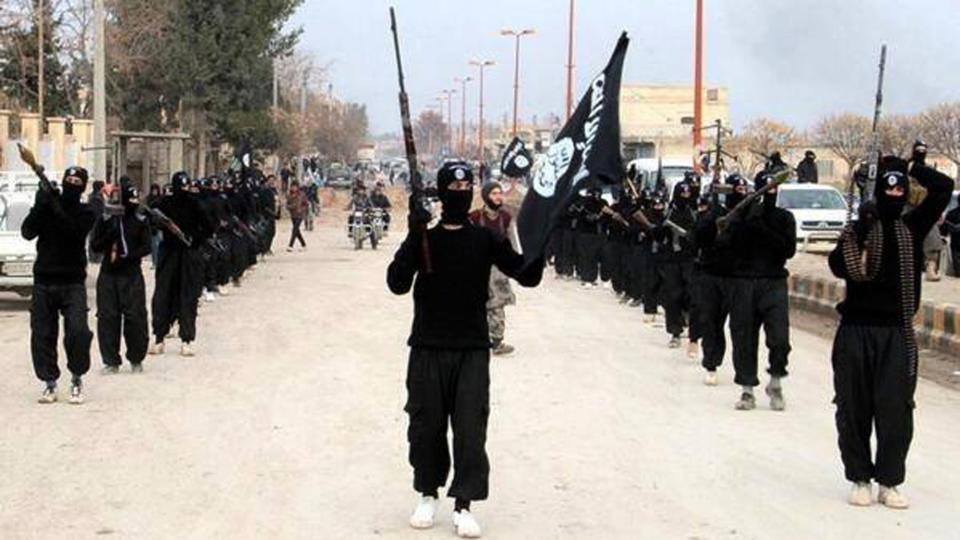Syrian government allows supplies in 2 rebel areas
BEIRUT (AP) — The Syrian government allowed supplies to enter two besieged areas under opposition control near the capital, a relief official said Thursday, as activists say weeks of infighting between rebel forces and an al-Qaida group-linked group have killed more than 1,000 people.
Khaled Iriqsousi, who heads the Syrian Arab Red Crescent, told The Associated Press that enough supplies to feed 10,000 people for a month entered the Damascus suburbs of al-Ghezlaniya and Jdaidet al-Shibani on Thursday. The areas are east and west of the capital of a region known as Ghouta.
On Tuesday, Syria's government and the main Western-backed opposition group, the Syrian National Coalition, agreed to allow humanitarian aid into some blocked-off areas.
The agreement was announced in Paris by U.S. Secretary of State John Kerry and Russian Foreign Minister Sergey Lavrov, who together are working to broker progress to ease the bloody strife that has engulfed Syria since an uprising there began three years ago. A peace conference is scheduled to be held in Switzerland next week.
Earlier Thursday, United Nations Resident Coordinator Tareq al-Kurdi said U.N. organizations operating in Syria would start delivering urgent humanitarian aid to al-Ghezlaniya and Jdaidet al-Shibani.
Iriqsousi said 30 trucks carrying 2,000 boxes of food entered the two areas without incident. He said each box is about 40 kilograms (88 pounds) and includes items like rice, lentils, baby formula, blankets and detergents.
"This is the first time we have reached this area. It is considered one of the entrances of Ghouta," Iriqsousi said by telephone from Syria. "We hope that this will be the beginning for wider supply efforts."
One of the areas hardest hit by food shortages in Syria is the Palestinian refugee camp of Yarmouk, where residents say 46 people have died since October of starvation, illnesses exacerbated by hunger or because they couldn't obtain medical aid.
Iriqsousi said three recent attempts to enter the camp did not succeed.
"We tried from all roads and the response was bullets," he said, suggesting that profiteers might be responsible since they are benefiting from high food prices.
Also Thursday, an activist group said that two weeks of fighting between an al-Qaida-linked group and other rebel forces in Syria has killed more than 1,000 people.
The Britain-based Syrian Observatory for Human Rights, which has a network of activists around Syria, said that the fighting in northern and eastern parts of the country killed 1,069 since the clashes began Jan. 3.
The fighting pitting the al-Qaida-linked Islamic State of Iraq and the Levant and other groups is the most serious among rebel forces since the Syrian conflict began in March 2011.
The Observatory said that the dead included 130 civilians — including 21 who were "executed" by "Islamic State" members.
U.N. High Commissioner for Human Rights Navi Pillay said that over the past two weeks her office has received reports of "a succession of mass executions of civilians and fighters who were no longer participating in hostilities in Aleppo, Idlib and Raqqa by hard-line armed opposition groups in Syria, in particular by the" Islamic State of Iraq and the Levant.
She warned that such executions violate international humanitarian law, and the numbers of such violations are thought to be alarmingly high.
The Observatory reported heavy clashes between the "Islamic State" and other opposition groups in the northwestern town of Saraqeb where the Islamic group have been advancing for the past two days.
Mamdouh Jaloul, a Syrian activist from the northwestern province of Idlib who is currently in Turkey, said the town is witnessing "fierce street battles." He said many of the town's residents fled over the past two months as a result of intense government air raids, adding that the latest clash forced the few who stayed to flee to safer areas.
The Observatory said Islamic fighters advanced in the town from the northern and eastern sides and that there were casualties on both sides.



